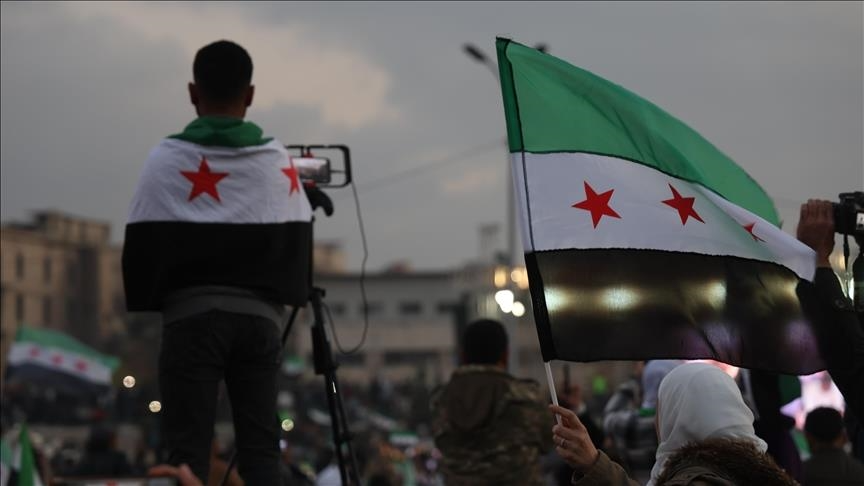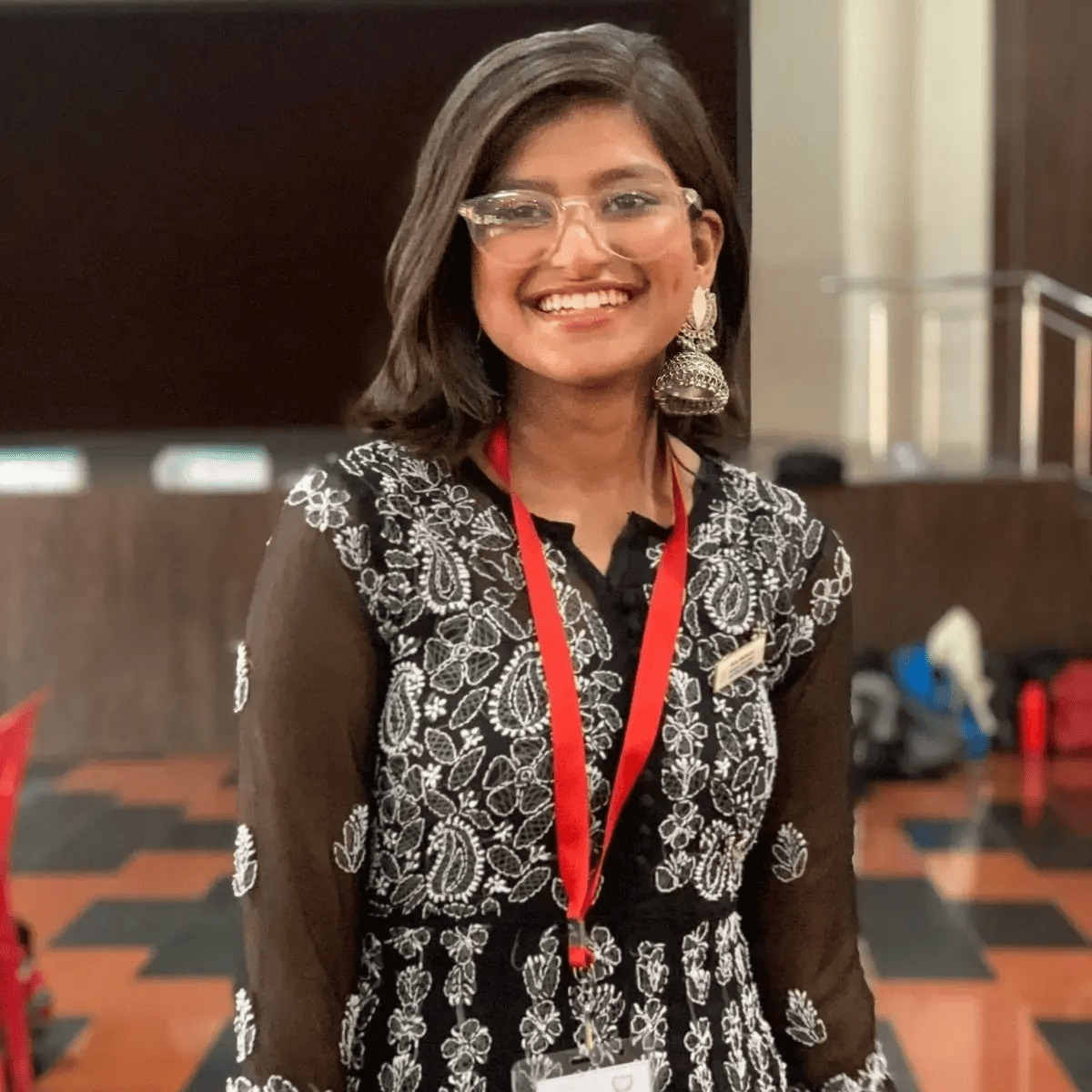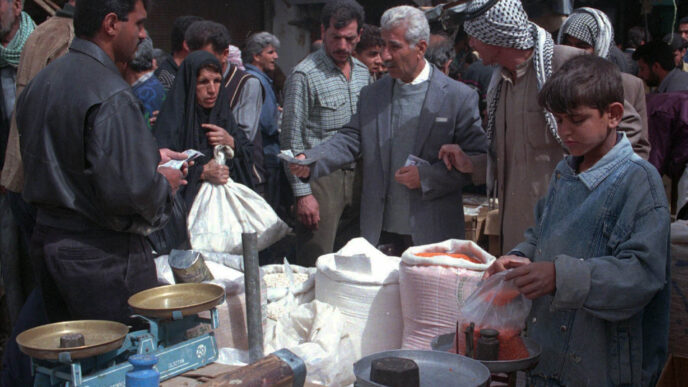Where Humanitarianism Lost Its Humanity?
Some crises make headlines; others barely register. In one part of the world, humanitarian aid is flown in within days. In another, people are left to starve while convoys are blocked, delayed, or politicized. The difference often comes down to more than need — it comes down to power, politics, and perception.
We are told that sanctions are a tool for peace, and that aid is a symbol of compassion. But in reality, both are often wielded selectively, rewarding allies and punishing enemies, while civilians are caught in the crossfire. These aren’t just moments of suffering; they’re scenes of man-made starvation, engineered not by nature but by policies, sanctions, and politics masquerading as morality.
Across Gaza, Syria, Iran, and Venezuela, we’ve seen how sanctions and aid are used to punish entire populations for the politics of their leaders. Food becomes a tool of pressure. Medicine becomes collateral. Aid becomes something you must earn. not because you're starving, but because of where you were born.
I’m not a policymaker. I’m just someone who’s reading the news, watching this happen, and wondering — how did the tools that were meant to protect life become the very reason people are dying in silence?
When Food Becomes a Weapon
In war, starvation is often seen as a side effect, tragic and inevitable. But in today’s conflicts, hunger is not accidental. It’s intentional. It’s weaponized. And it’s devastating.
Nowhere is this more evident than in Gaza, where food and fuel have long been strangled by a blockade. After October 2023, Israel further tightened restrictions—cutting electricity, halting aid trucks, and openly declaring that the siege would continue until hostages were released. Humanitarian organizations like Médecins Sans Frontières and UNICEF warned that children were dying from dehydration and malnutrition, not due to natural disasters, but as a direct result of political choices.
In Yemen, the situation is just as dire. For years, warring sides have blocked ports, bombed farmland, and obstructed humanitarian access. Over 17 million Yemenis are food insecure, according to the World Food Programme, not because there is no food, but because food is part of the war.
These aren’t isolated tragedies. They form a pattern — one where starvation is not a side effect but a strategy.
And the world watches. Often, in silence.
Sanctions That Starve the Innocent First
Sanctions are often sold to the public as strategic and bloodless, a way to hold governments accountable without firing a shot. But in reality, they can feel like a slow, invisible war waged against the very people they claim to protect.
In Iran, U.S. sanctions intensified after 2018, choking the country’s economy. While humanitarian goods like medicine are technically exempt, banking restrictions and shipping fears make it nearly impossible to import essential drugs. According to Human Rights Watch, patients with cancer and epilepsy have died waiting for treatments that exist, just not for them.
In Syria, a decade of civil war was compounded by sweeping Western sanctions. Fuel shortages crippled hospitals. Sanctions disrupted earthquake relief in 2023, even as families were still trapped under rubble. And in Venezuela, sanctions targeting the Maduro regime led to a collapse in medical supply chains. A 2019 report by the Center for Economic and Policy Research estimated over 40,000 excess deaths, many preventable, caused by restricted access to care.
These policies rarely harm the elite. They punish the powerless, the ones with no say in foreign policy, but every stake in survival.
But Aren’t Sanctions Sometimes Necessary?

Not all sanctions are inherently unjust. In some historical cases, such as apartheid-era South Africa, targeted sanctions played a crucial role in global pressure campaigns. When carefully designed, they can restrict ruling elites without inflicting widespread harm on civilians.
The problem arises when sanctions are broad, unchecked, and sustained without review. When economic blockades cut off medicine, paralyze food imports, or delay disaster relief, the issue is no longer about strategy — it is about suffering. And about who we are willing to let suffer.
Aid, But Only for Some
In theory, humanitarian aid should be neutral, driven by need, not by politics. But in practice, who gets help, how fast, and how much often depends on how closely their suffering aligns with geopolitical interests.
When Russia invaded Ukraine, the world responded rapidly. Billions in aid were mobilized. Refugees were welcomed across borders. The media, rightly, covered the crisis with urgency and empathy.
But in Gaza, where civilians endure a prolonged blockade and relentless bombardment, aid barely trickles in — if it arrives at all. After October 2023, Oxfam reported that aid reaching Gaza had dropped to under 3% of pre-war levels, even as famine warnings grew urgent.
In Yemen, one of the world’s worst humanitarian crises, UN response plans have been chronically underfunded, despite millions facing starvation. And in Afghanistan, aid dried up almost overnight after the Taliban takeover, even though it was civilians, not commanders, who went hungry.
According to a 2024 UNICEF field report, a mother in northern Gaza described walking four kilometers with her children, under the gaze of drones, just to fetch two bottles of water. “It wasn’t even clean,” she said, “but they were thirsty.”
This is not an isolated story — it is a humanitarian failure, driven not by scarcity, but by politics.
Not all pain gets treated equally. Some lives are grieved publicly. Others are bartered over behind closed doors.
The UN’s Silence Isn’t Neutral
The United Nations was built on the promise of peace, protection, and impartial humanitarian response. But too often, its silence or slowness has made it complicit in the very crises it was created to prevent.
In Gaza, UN agencies like OCHA and WFP sounded alarms about mass displacement and famine, yet the Security Council stalled. Ceasefire resolutions were blocked. Humanitarian corridors delayed. All the while, aid trucks sat idle as children died in hospitals without power.
In Syria, cross-border aid has been routinely vetoed. In Tigray, whistleblowers reported that UN officials softened atrocity reports. In Myanmar, the UN’s response to the Rohingya genocide was so delayed that even its own review called it a “systemic failure.”
The UN was never meant to stand by. Yet as long as its actions are dictated by powerful states, its neutrality is reduced to performance — and its silence becomes complicit.
Punishment in the Name of Policy
Sanctions and aid blockades are often justified as strategic, as a means to pressure governments, contain threats, or enforce accountability. But for the people living under them, they don’t feel like a strategy. They feel like punishment.
In Gaza, electricity was cut, water was shut off, and food convoys were blocked, not just during wartime, but for years under siege. After October 2023, the blockade tightened to levels the UN Human Rights experts called “collective punishment,” a violation of international law. Yet little changed.
In Venezuela, sanctions targeting government officials collapsed the currency, froze assets, and disrupted food imports. In hospitals, cancer patients were turned away due to medicine shortages. Children died waiting for organ transplants, not because Venezuela lacked skilled doctors but because the country was barred from legally importing the necessary equipment and medicines.
These aren't targeted measures. They're blunt instruments that ignore the distinction between leaders and the led. And when entire populations are left to suffer in hopes that governments will bend, we have to ask — what kind of policy treats hunger, illness, and death as leverage?
The Politics Behind the Promise of Aid
At its heart, humanitarianism is supposed to be simple: when people are suffering, we help. But somewhere along the way, that simplicity was lost, replaced by conditions, by negotiations, by politics that turn suffering into leverage. Aid became selective. Sanctions became sweeping. Empathy became strategic.
In 2022, UN OCHA reported that its humanitarian response plan for Afghanistan was only 41% funded, while Ukraine’s was over 85% funded in a fraction of the time. The message, even if unintentional, is clear: not all pain is treated equally. Not all grief is global.
And that truth reaches far beyond statistics. It’s felt by the mother in Gaza who must boil weeds to feed her children. By a patient in Tehran who can't access chemotherapy. By the Yemeni child born into famine, not of their making, yet punished for decisions they never chose.
People should not have to be born in the “right” place to deserve dignity, nor should they have to wait for international outrage to earn clean water. Their survival must never hinge on how useful their suffering is to someone else’s agenda.
Aid must be delivered based on need — not alliances, not optics, and certainly not politics.
The world has always had the resources and the ability.
What it lacks is the will to act and the moral clarity to remember why it must.
In the end, this is not just a failure of policy; it is a failure of principle.
History will remember not just the policies we created, but the lives we chose to save or let suffer. It is time we choose humanity over politics.
 Richa Wadhwani
Richa Wadhwani